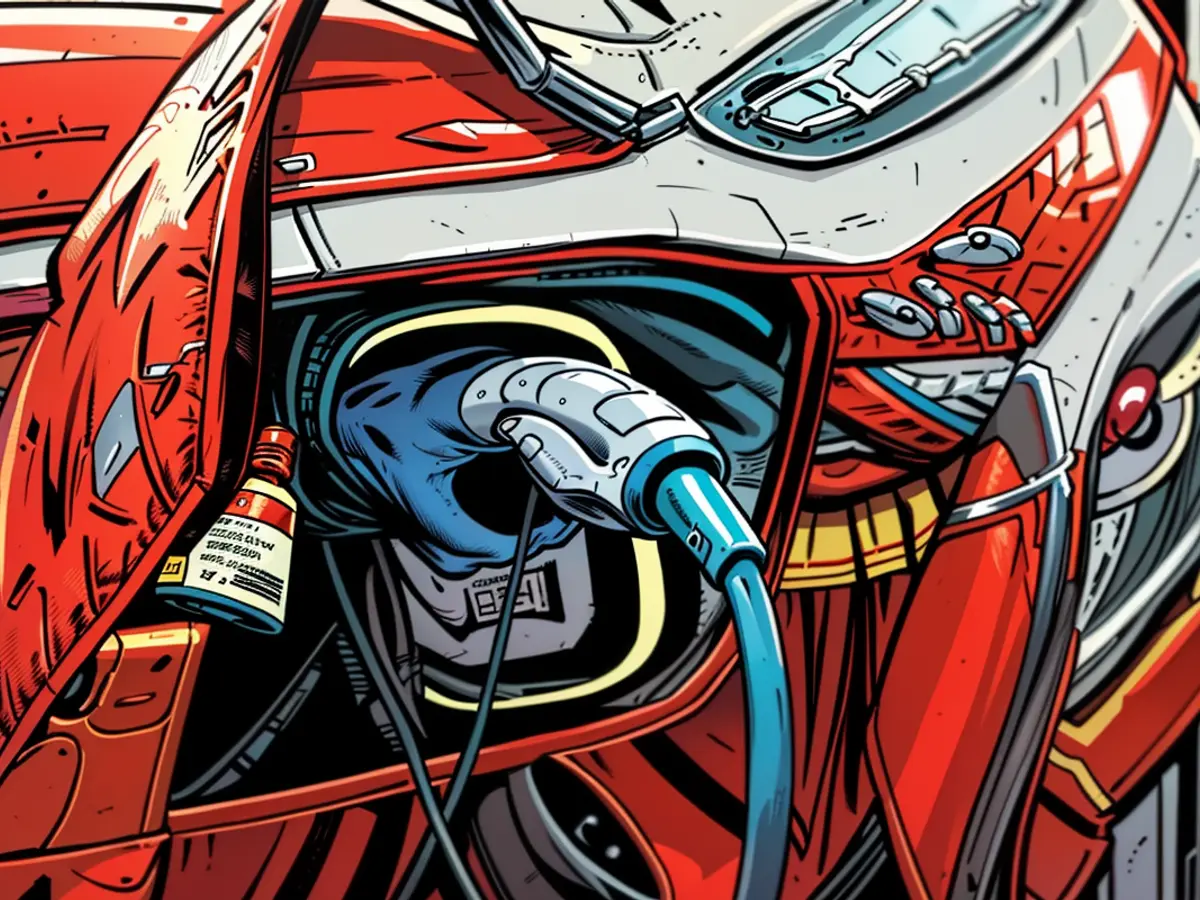Streamlining production: Businesses should enhance their capability to produce costlier electronic commercial vehicles at an accelerated rate.
Plans suggest a temporary special depreciation rate by 2028: In the initial year of purchase, a 40% rate is proposed. This then decreases to 24%, 14%, 9%, 7%, and 6% in subsequent years. The government justifies this as providing "strong tax incentives, especially for the market boost of electric mobility in the business sector," says the ministry.
Additionally, the reduced tax rate for electric company cars will extend to pricier models. Currently, only cars under 70,000 euros benefit from lower taxation. This threshold will increase to 95,000 euros.
The Finance Ministry predicts annual tax losses of 465 million euros from 2024 to 2028 due to this special depreciation. The tax break for expensive electric cars would cost the government a total of 140 million euros by 2028.
Germany has seen a decrease in new electric car registrations for quite some time. In August, they dropped by 68.8% compared to the previous year, according to recent data from the Federal Motor Transport Authority. Reasons include the end of public funding for electric car purchases last year and the higher prices compared to traditional engines. Consumers are also reportedly uncertain due to calls to delay the 2035 combustion engine ban from politics.
"Increased depreciation for battery-electric company cars in the initial years can be beneficial to introduce used electric vehicles," stated Jens Hilgenberg from BUND. However, he criticized the tax benefits for costly electric cars as being 'more like a present to Mercedes, BMW, and Audi.' He believes the manufacturers' issues stem mainly from the lack of affordable electric cars on the market.
Stefanie Langkamp from the Climate Alliance also voiced concerns: "The government keeps promoting expensive luxury company cars and dirty combustion engine vehicles instead of empowering the market for budget-friendly small electric cars."
However, the Association of the Automotive Industry (VDA) supported both measures as "a significant and correct signal." The accelerated depreciation could 'foster the growth of electric mobility,' explained VDA President Hildegard Müller. Particularly, the increase in the tax base from 70,000 to 95,000 euros would help speed up the growth. "This will also contribute to the used car market for full-electric passenger cars, as company cars will be more readily available at an affordable price after the lease period, which is usually three years," she added.
Companies in the business sector may find these proposed tax incentives attractive, as they provide significant depreciation rates for electric mobility in the initial purchase years. The extended reduced tax rate for electric company cars also applies to pricier models, potentially encouraging more companies to invest in electric vehicles.







